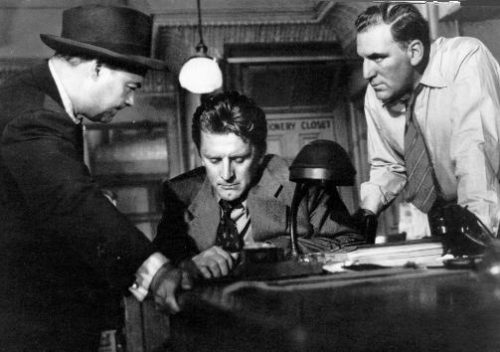TCM Classic Film Festival 2017: Part Three, by David Bax
It’s an Internet cliché at this point to say that something “gives me life.” But that sentiment holds true (figuratively, of course) for TCM Fest. For those who hold fast to the ideal that the movies of the past still have plenty to tell us, to show us and to teach us, the festival is live-giving, an undeniable affirmation. This year’s comedy theme only enforces that. There’s nothing quite like the bond you form by laughing together with strangers in the dark.
There’s also nothing quite so fleeting. After only just beginning on Thursday, this year’s TCM Fest must come to an end just like all the others before it. As much as we devotees would like it to go on forever, we have to return to our lives and keep our individual flames burning for all the old movies.
This all makes TCM Fest more than a little bittersweet. It’s fitting, then, that so many of the films I saw this year were about divorce. I’ve already covered Red-Headed Woman and The Awful Truth over the past couple entries. And I started my final day at the festival with Preston Sturges’ The Palm Beach Story. Like many of Sturges’ movies, this one contains equal parts chaos (a drunken coterie of quail hunters storming up and down the cars of a passenger train, howling dogs in tow, firing shotguns through the roof and windows) and brains (Claudette Colbert’s magnificent, proto-woke monologue about the “look” women start to get from men at the age of fourteen and must contend with henceforth).
Like its similarly named precursor The Philadelphia Story, The Palm Beach Story has four main characters, two men and two women, with romantic entanglements that don’t play out as simply as their configuration would suggest. It’s also a fast-paced farce, complete with misunderstandings, assumed identities and a character known as The Weenie King. The movie zings and sings like it were made yesterday but with crackerjack lines like, “Nothing is permanent in this world except Roosevelt” to remind you that it wasn’t.
Already in the “story” mood, I decided to end my time at the festival with William Wyler’s Detective Story, with a pre-screening interview with Lee Grant, who was nominated for an Oscar for her role before spending twelve years on Hollywood’s blacklist.
It was a fitting introduction—what with Grant having been victimized by dispassionate, wrongheaded ideologues—given that Detective Story is, ultimately, a portrait of the tragic folly of hardline, black-and-white thinking. It’s largely an ensemble piece but Kirk Douglas stands front and center as Detective James McLeod. Over the course of a hot summer evening (the cops’ shirts are stuck to their backs with sweat), various criminals and lawman cycle through the precinct, as does McLeod’s wife (Eleanor Parker, also nominated) and a pesky, presumptuous lawyer (Warner Anderson).
Over the course of the movie, which plays out in something close to real time, McLeod will have all of the principles to which he has unwaveringly dedicated himself tested. He has never questioned his notions about criminals (“A different breed”) and, more disastrously, he has never questioned his notions about what it means for a person to be pure. McLeod idolizes his wife; or, rather, as he comes to find out, he idolizes his wife as he as painted her in his head. A shattering exchange between the married couple late in the film (“I never said I was.” “You never said you weren’t!”) sent shock waves through the audience. One of McLeod’s compatriots extolls the virtue of compromise, arguing that you “bend with the wind or break.” Detective Story puts that analogy to the test, to devastating result.
McCleod, his wife and the handful of thieves and killers that they encounter may not have much of a future ahead of them. But us? We’ve always got next year’s TCM Fest.
































